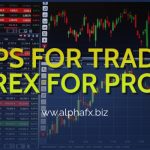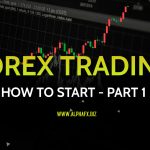Continuing my series on How To Start Trading the Forex Market – Part 1 this post will detail some essential tips to look for in choosing Forex brokers that you are going to be working with. The Forex broker is an intermediary between you, the Forex trader and the list of bank(s) that they are getting their feeds from.
There are many forex brokers around, and searching for a good one can be tedious. To be successful you need to ensure you obtain a regulated broker so as to ensure you do not get scammed.
Below are some essential tips to consider when selecting a Forex Broker.
Essential tips for choosing a Forex Broker
1. Regulations and Compliance
Forex market exchanges take place ‘over the counter, i.e. with no physical location like a stock or commodity exchange and this means the brokers market is susceptible to scam and fraud.
In choosing a broker, you need to ensure that the broker is regulated by the officially regulated authority in the zone or country in which they are located as this will ensure you have protection and insurance against any fraud/scam – or in case the broker goes into administration. A regulated broker is required to ensure your funds remain separate from the broker’s operating funds.
Below are some of the authorised and regulated authorities
1. Brokers operating in UK would be authorized and regulated by the Financial Conduct Authority (FCA)
2. Brokers operating in Cyprus would be authorized and regulated by the Cyprus Securities Exchange Commission (CySEC)
3. Brokers operating in the British Virgin Islands would be authorized and regulated by the British Virgin Islands Financial Services Commission (BVI FSC)
4. Brokers operating in the USA would be authorized and regulated by the National Futures Associations (NFA), the Commodity Futures Trading Committee(CFTC)
5. Brokers operating in Australian would be authorized and regulated by the Australian Securities and Investment Commission (ASIC)
6. Brokers operating in Canada would be authorized and regulated by the Canadian Derivatives Clearing Corporation (CDCC)
7. Brokers operating in Germany would be authorized and regulated by the Federal Financial Supervisory Authority (BaFin)
8. Brokers operating in the European Union would be authorized and regulated by the European Securities and Markets Authority (ESMA)
9. Brokers operating in Japan would be authorized and regulated by the Financial Services Agency of Japan (FSA Japan)
10.Brokers operating in Ireland would be authorized and regulated by the Central Bank of Ireland (CBI)
11.Brokers operating in Sweden would be authorized and regulated by the Swedish Financial Supervisory Authority (Swedish FSA)
The list is endless but the primary goal is to ensure that your broker(s) is regulated and in compliance in the country they are operating from. If the broker is not regulated, then do not risk opening a live account with the firm.
2. Reputation and Customer Service
Check the reputation of the broker, how established are they? What is their customer support like? How quick can you reach them in case of any issues such as platform not responding, fund withdrawals and all other related support activities. What form of contact/communication channels are available. Check out reviews of the firm on Forex trading review sites or by typing the firm’s name in ‘Google’ and typing the words ‘scam’ or ‘reviews’ or ‘complaints’ with the firm’s name.
3. Spread and Slippage
You need to evaluate the types of spread and slippage your broker offers. Some brokers offer a fixed spread, variable spread or both. The Spread is the difference between the bid and ask prices of a currency pair. Also, you need to have the knowledge of what slippage to expect to occur during normal and fast moving markets.
4. Margin and Rollover Requirements
What is the margin requirement of your selected broker? That is, what percentage of the investment in your trades do they expect you to pay to open a trade. You also want to know about their margin calls, and the time you need to respond to such calls. Does the broker have any minimum margin requirements which they use to earn interest on any overnight positions?
5. Trading Account types
What type(s) of trading account is the broker providing?
There are three primary types of trading accounts – standard, mini and micro – with each having its pros and cons.
6. Trading amount of funds required to open a live account
Check the broker for the amount of fund needed to deposit into a live account to start trading.
7. Fund deposit and withdrawal processes
Check the methods available to deposit funds into your trading account, as well as the withdrawal process.
8. Account opening process
Check their live account-opening process and their verification process. The account opening and verification processes should be completed within 24 to 48 hours.
9. Currency pairs available and Trading Platform usability
Last but not the least, open a demo account and download their trading platform to test the usability and the currency pairs available.
There are many Forex brokers available globally, and searching for a good one can be extremely tedious. However, to become a successful trader, you have to get the best broker that will give you that extra edge you need as a trader, as well as not scam you.
There are many advertisements around about Forex brokers soliciting for customers to open an account with them – with mouth-watering bonuses serving as enticements. Ensure you use some of the tips discussed in this post to choose whichever broker you are going to work with. Happy trading.


